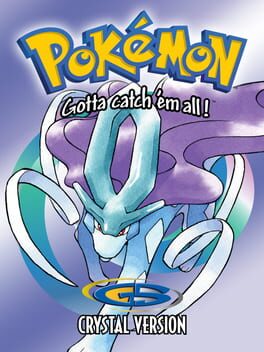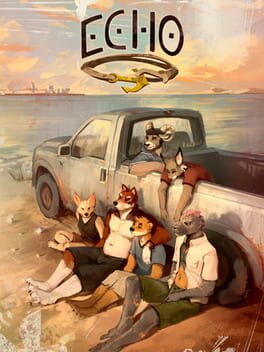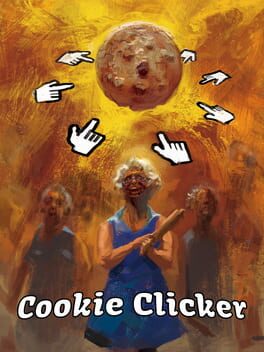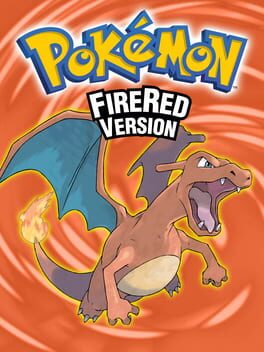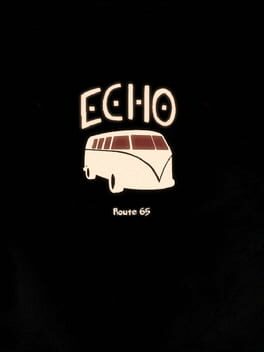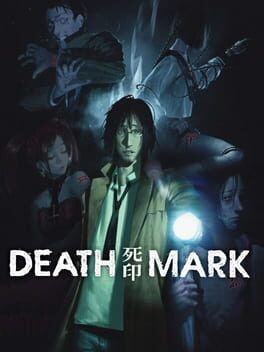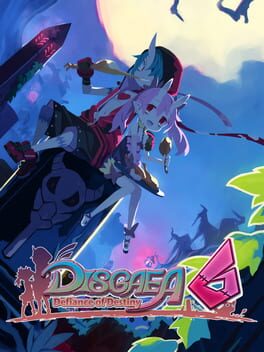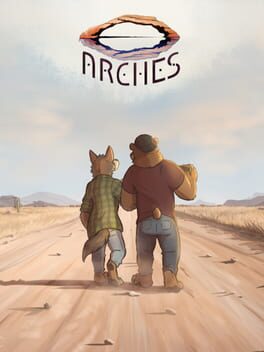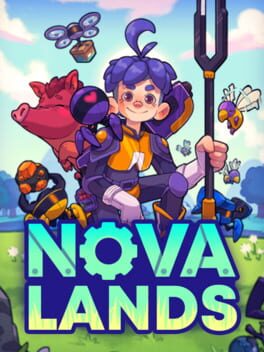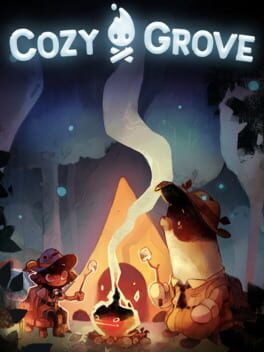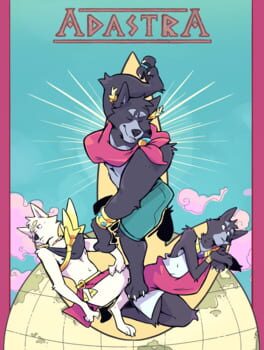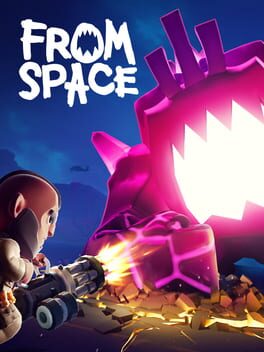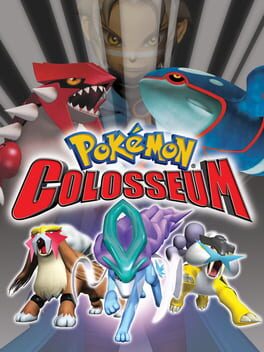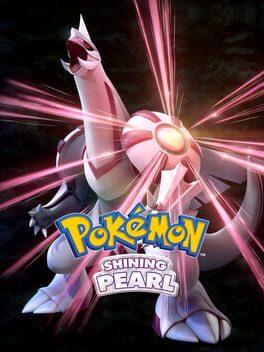kimpira
BACKER
I've made it a project to finally finish all the older Pokemon games in roughly chronological order, and now I've finally wrapped up Gen 2.
I'm old and nerdy enough to have played partially-translated versions of Red and Green on No$GMB before they ever came out in the US. I wasn't quite grown, but I was definitely older than the target audience and approached the games as a fan of console RPGs. I was really impressed by how ambitious the games were: a huge amount of monsters that were all playable & with designs that broke away from the medieval fantasy rut that most RPGs were still stuck in.
So with that in mind, Gen 2 is still a big jump in ambition for a handheld RPG. It adds a breeding system, holdable items & a realtime clock that enables a host of subfeatures like daily events, nocturnal/diurnal monsters, time-specific evolutions and moves that vary according to in-game light levels.
And then there's Kanto, a post-game that's nearly as large as the base game. (Though much faster to complete, since the mons in most areas are pretty low level.)
The game's story is barely there, as always, but I do like how your Gen 2 rival is just some guy who sucks. He's not even the final trainer you have to beat to become the champion.
I'm old and nerdy enough to have played partially-translated versions of Red and Green on No$GMB before they ever came out in the US. I wasn't quite grown, but I was definitely older than the target audience and approached the games as a fan of console RPGs. I was really impressed by how ambitious the games were: a huge amount of monsters that were all playable & with designs that broke away from the medieval fantasy rut that most RPGs were still stuck in.
So with that in mind, Gen 2 is still a big jump in ambition for a handheld RPG. It adds a breeding system, holdable items & a realtime clock that enables a host of subfeatures like daily events, nocturnal/diurnal monsters, time-specific evolutions and moves that vary according to in-game light levels.
And then there's Kanto, a post-game that's nearly as large as the base game. (Though much faster to complete, since the mons in most areas are pretty low level.)
The game's story is barely there, as always, but I do like how your Gen 2 rival is just some guy who sucks. He's not even the final trainer you have to beat to become the champion.
2015
I tried this out a few years ago and bounced off it. The setting seemed dreary and the cast kinda unpleasant. It finally clicked for me after getting an introduction to the town via the first couple of hours of The Smoke Room. I was talking to someone looking for VN recs and they said that TSR was too scary for them, so I played through it long enough to get an idea of the the series' vibe.
That was enough to return to Echo with fresh and more forgiving eyes. It paid off! The writing has problems with malapropisms, odd phrasings, occasional misspellings, and an idea of life in a hot climate that seems untouched by personal experience, but the imaginative work that the writing is doing elevates it to something special.
That was enough to return to Echo with fresh and more forgiving eyes. It paid off! The writing has problems with malapropisms, odd phrasings, occasional misspellings, and an idea of life in a hot climate that seems untouched by personal experience, but the imaginative work that the writing is doing elevates it to something special.
2013
Prior to its release on steam, I assumed Cookie Clicker was one of those exploitative Facebook games. In reality, it was a parody game that kind of got out of hand. The $5 Steam pricetag could be considered a sort of one-off donation to the developer, as the web original is still freely accessible and updated in tandem.
Rather than manipulating players into real money transactions, it actually encourages tampering to the extent that there are even achievements for both modding the game and directly manipulating your number of cookies via the javascript console.
With Disgaea 6 and now this, I'm getting more and more interested in games that mimic traditional genres but abstract away smaller repetitive actions and instead emphasize programming, modding, and other kinds of customization.
Rather than manipulating players into real money transactions, it actually encourages tampering to the extent that there are even achievements for both modding the game and directly manipulating your number of cookies via the javascript console.
With Disgaea 6 and now this, I'm getting more and more interested in games that mimic traditional genres but abstract away smaller repetitive actions and instead emphasize programming, modding, and other kinds of customization.
When Pokemon Home launched, I realized that it was now possible to transfer pokemon from all the way back to the third generation up to the newest game. I also realized that I hadn't actually played FireRed/LeafGreen at the time!
Impressions:
- I've had enough time to get used to the modern 3D models in later games that a return to the 2D battle sprites is delightful.
- There's a neat "Last time on..." presentation that plays when you load a saved game. It'll show you the last 4 actions you took, along the lines of, "You left Mount Moon. You spent $1000 on pokeballs."
- The game was released with a wireless adapter of some kind, and that's unfortunately the only way to trade wirelessly. Despite the presence of a GBA cart slot on early NDS models, it can't take advantage of the DS' built-in wireless. And since my model of DS does not have a link cable port, the easiest way to trade gen 3 monsters in 2020 seems to involve save-dumping your carts and using a 3rd party desktop save-editing program designed for this purpose.
Impressions:
- I've had enough time to get used to the modern 3D models in later games that a return to the 2D battle sprites is delightful.
- There's a neat "Last time on..." presentation that plays when you load a saved game. It'll show you the last 4 actions you took, along the lines of, "You left Mount Moon. You spent $1000 on pokeballs."
- The game was released with a wireless adapter of some kind, and that's unfortunately the only way to trade wirelessly. Despite the presence of a GBA cart slot on early NDS models, it can't take advantage of the DS' built-in wireless. And since my model of DS does not have a link cable port, the easiest way to trade gen 3 monsters in 2020 seems to involve save-dumping your carts and using a 3rd party desktop save-editing program designed for this purpose.
2018
This is a short, interactive retelling of something that appears in Echo as a reminiscence about the start of Chase's relationship with Leo. It's technically an independent story, but it relies too much on the player's familiarity with the cast and setting to really be called a standalone.
Route 65 is overall much lighter in tone than the main game. There are some elements of horror, but they're closer to being allusions to later events than active plot elements.
It has the same problems as the main game with bizarre (or sometimes just British) turns of phrase, but is saved by a lot of well-done character humor. The main character's anxieties about coming out and being seen differently by his friends and family will likely be familiar to any gay reader, even if the circumstances of their coming out don't quite match his.
Route 65 is overall much lighter in tone than the main game. There are some elements of horror, but they're closer to being allusions to later events than active plot elements.
It has the same problems as the main game with bizarre (or sometimes just British) turns of phrase, but is saved by a lot of well-done character humor. The main character's anxieties about coming out and being seen differently by his friends and family will likely be familiar to any gay reader, even if the circumstances of their coming out don't quite match his.
Really nice art and memorable creature designs.
About the genre: This gets called a visual novel a lot, but it's secretly a very old-school first person point and click adventure game.
I wouldn't even call it a dungeon crawler, exactly. The mini-map shows your direction within a room, but you're not able to pivot in place and usually only a hallway or crossroads can be viewed from more than one angle.
I definitely enjoyed this as more of a monster-hunting adventure game than a horror game. It IS a horror game, but it kinda feels like the point and click stuff is at odds with the horror.
Like, Death Mark is very good about not doing anything without your input. There are clearly labeled sections where you answer life-or-death questions under a time limit, but outside of those, you're free to sit and consider your next action as long as you want. That's something I really appreciate in an adventure game, but it does kinda undermine the threatening atmosphere that horror games like to cultivate.
The need to set up puzzles for the chapter-ending confrontations also limits how detailed the game is able to get when disclosing the history of the ghosts, at least until the chapter is over. Getting the good ending for each chapter depends a lot on reading between the lines of fragmentary clues and then dealing with the ghost in a way that addresses its unique history.
About the genre: This gets called a visual novel a lot, but it's secretly a very old-school first person point and click adventure game.
I wouldn't even call it a dungeon crawler, exactly. The mini-map shows your direction within a room, but you're not able to pivot in place and usually only a hallway or crossroads can be viewed from more than one angle.
I definitely enjoyed this as more of a monster-hunting adventure game than a horror game. It IS a horror game, but it kinda feels like the point and click stuff is at odds with the horror.
Like, Death Mark is very good about not doing anything without your input. There are clearly labeled sections where you answer life-or-death questions under a time limit, but outside of those, you're free to sit and consider your next action as long as you want. That's something I really appreciate in an adventure game, but it does kinda undermine the threatening atmosphere that horror games like to cultivate.
The need to set up puzzles for the chapter-ending confrontations also limits how detailed the game is able to get when disclosing the history of the ghosts, at least until the chapter is over. Getting the good ending for each chapter depends a lot on reading between the lines of fragmentary clues and then dealing with the ghost in a way that addresses its unique history.
It's a solid entry in the series. The main character Zed stands out from the pack of Disgaea protags in both his personality and design. Most of the other Disgaea leads are born to authority or privilege, but he's just some zombie that wants revenge. A sort of revenant. His determination to get back up no matter how many times he's destroyed fits nicely with the reincarnation mechanics of the Disgaea series.
A lot of systems have been simplified in this, to the point that Disgaea 6 might have made more sense as a side-game. The distinction between monsters and humanoids, present in all the previous games, has been dropped.
The Disgaea games have always been designed to make you feel like you're getting away with something. From game one you were able to bribe or bully the senators that were there to constrain your power, and for several games now there's been a there's been a "cheat shop" that lets you directly manipulate multipliers for money, experience and other rewards.
Disgaea 6 adds to this with the Juice Bar, which allows you to directly purchase mana, experience, weapon and class levels for a character from a collective pool that gradually fills up as you finish battles. It works because it starts off as prohibitively expensive, but the money adds up and soon you notice that you can instantly master a weapon that was previously hovering at around level 8 of 100.
Disgaea is about making numbers larger, but more specifically it's about the slow climbs, plateaus and sudden orders-of-magnitude accelerations designed into it.
The game's other major innovation in making you feel like you're cheating despite playing the game as intended is its new user-programmable autobattle system. If you're not strong enough to clear a level on your first try, there's no need to manually plink away at lesser enemies till you're ready to go again. You can just auto-replay older levels until you're strong enough (or wealthy enough to purchase the strength) to continue.
You don't even have to manually win battles the first time you do them, either. There are a handful that are complex enough to require manual navigation, but it's largely up to you whether you want to focus on preplanning and AI programming or manually guiding your characters in order to do more with less.
This makes the game friendlier to players that may have an RSI, but that doesn't seem to be fully intentional. Other parts of the game fairly encourage repetitive stress, like the character-specific achievements (D-merits) for things that cannot be automated, like using the Juice Bar 255 times.
A lot of systems have been simplified in this, to the point that Disgaea 6 might have made more sense as a side-game. The distinction between monsters and humanoids, present in all the previous games, has been dropped.
The Disgaea games have always been designed to make you feel like you're getting away with something. From game one you were able to bribe or bully the senators that were there to constrain your power, and for several games now there's been a there's been a "cheat shop" that lets you directly manipulate multipliers for money, experience and other rewards.
Disgaea 6 adds to this with the Juice Bar, which allows you to directly purchase mana, experience, weapon and class levels for a character from a collective pool that gradually fills up as you finish battles. It works because it starts off as prohibitively expensive, but the money adds up and soon you notice that you can instantly master a weapon that was previously hovering at around level 8 of 100.
Disgaea is about making numbers larger, but more specifically it's about the slow climbs, plateaus and sudden orders-of-magnitude accelerations designed into it.
The game's other major innovation in making you feel like you're cheating despite playing the game as intended is its new user-programmable autobattle system. If you're not strong enough to clear a level on your first try, there's no need to manually plink away at lesser enemies till you're ready to go again. You can just auto-replay older levels until you're strong enough (or wealthy enough to purchase the strength) to continue.
You don't even have to manually win battles the first time you do them, either. There are a handful that are complex enough to require manual navigation, but it's largely up to you whether you want to focus on preplanning and AI programming or manually guiding your characters in order to do more with less.
This makes the game friendlier to players that may have an RSI, but that doesn't seem to be fully intentional. Other parts of the game fairly encourage repetitive stress, like the character-specific achievements (D-merits) for things that cannot be automated, like using the Juice Bar 255 times.
2020
A factory sim that is a bit distinct from Zachtronics-style puzzle games in that it takes place on a large persistent map, rather than having a separate workspace for each level. It also has one single immovable drop off point in the center of the map. This encourages a big sprawling factory with lots of highways to move things around, but drawing roads gets dull after a while. Resource spawn points aren't movable either, and relatively sparse on the scale of your factory components, so you have a choice of either building near your hub (as near you can, as your factory expands) and drawing long roads to supply resources, or building near the resources and drawing long roads back to the hub.
The logistics are supposed to be part of the challenge, but it's not a very interesting one. I don't think I'll be playing much more of this, but I am still interested in the sequel that is supposed to come out this year.
The logistics are supposed to be part of the challenge, but it's not a very interesting one. I don't think I'll be playing much more of this, but I am still interested in the sequel that is supposed to come out this year.
2021
2023
Not a bad successor to Forager, which last I checked got abandoned after a doomed attempt at adding a co-op mode. I was a little worried that this was gonna be the kind of management game that gets me so engrossed in an endless sequence of super quick little tasks that I fuck up my hands/wrists from overuse, but the automation features kick in midway through and it's possible (but not required) to play it as something closer to an idle game.
2021
A gently spooky errand simulator set on an island populated by ghosts of the blocky little bears that are Spry Fox's trademark.
While it's heavily influenced by Animal Crossing with its realtime clock and seasonal changes to available resources, there's more focus on narrative. The ghosts all have pre-authored stories that they gradually reveal as you complete their requests.
Like Animal Crossing, there are a lot of decoration items to find or craft, but the game's island is a lot more resistant to player intervention. There are a few empty areas set aside for player use, but don't expect to remake the whole island in your image. Natural features like trees cannot be moved, except for the ones you place yourself.
A lot about the game falls into place when you realize it was built to be a hidden object game: the default state of the island is a monochrome line drawing densely cluttered with randomly placed objects that get reshuffled every day. Only your campsite and your ghostly neighbors remain as fixed points.
When you complete a ghost's errand for the day, they give off a light that colors in everything in their section of the island, making it easier to find things you might have overlooked. Any lanterns placed in an illuminated region will light up and cast their own circle of light, making it possible to chain lanterns and persistently illuminate some of the farther spots of the island.
The island grows in size as you make friends with more and more spirits, and after a certain point it was no longer really feasible to fulfill hidden object quests without purchasing hints from one of the bears. Eventually I started ignoring any requests that weren't strictly necessary to advance a bear's storyline, which maybe undermines the empathy-generating goals of Cozy Grove's design.
While it's heavily influenced by Animal Crossing with its realtime clock and seasonal changes to available resources, there's more focus on narrative. The ghosts all have pre-authored stories that they gradually reveal as you complete their requests.
Like Animal Crossing, there are a lot of decoration items to find or craft, but the game's island is a lot more resistant to player intervention. There are a few empty areas set aside for player use, but don't expect to remake the whole island in your image. Natural features like trees cannot be moved, except for the ones you place yourself.
A lot about the game falls into place when you realize it was built to be a hidden object game: the default state of the island is a monochrome line drawing densely cluttered with randomly placed objects that get reshuffled every day. Only your campsite and your ghostly neighbors remain as fixed points.
When you complete a ghost's errand for the day, they give off a light that colors in everything in their section of the island, making it easier to find things you might have overlooked. Any lanterns placed in an illuminated region will light up and cast their own circle of light, making it possible to chain lanterns and persistently illuminate some of the farther spots of the island.
The island grows in size as you make friends with more and more spirits, and after a certain point it was no longer really feasible to fulfill hidden object quests without purchasing hints from one of the bears. Eventually I started ignoring any requests that weren't strictly necessary to advance a bear's storyline, which maybe undermines the empathy-generating goals of Cozy Grove's design.
2018
The last of the currently complete Echo Project VNs. It's still gay and still furry, but set in a different continuity and way more escapist in intent.
The art is nice, the presentation is more polished than Echo, and the writing is free of the weird phrasing/word choice problems that bring down a lot of the other Echo VNs. The final stretch of the story feels a bit filibustery, but that can probably be attributed to its patreon-based funding.
At its heart, it's a pretty standard romance novel. With all the books on smashwords/kindle unlimited called like "Claimed by the Shifter CEO," even the fact that it's a human/furry pairing doesn't place it that far out of the mainstream.
The art is nice, the presentation is more polished than Echo, and the writing is free of the weird phrasing/word choice problems that bring down a lot of the other Echo VNs. The final stretch of the story feels a bit filibustery, but that can probably be attributed to its patreon-based funding.
At its heart, it's a pretty standard romance novel. With all the books on smashwords/kindle unlimited called like "Claimed by the Shifter CEO," even the fact that it's a human/furry pairing doesn't place it that far out of the mainstream.
2022
One of the Dec '23 Humble Choice games. It's a top-down twin stick co-op shooter, something like Torchlight or a very distant descendant of Gauntlet. Because it's so new and high-ish(?) budget compared to the stuff I usually play, it was a bit prettier than I'm used to, but it lacks personality. There's no real spark to it.
2003
Before starting this, I assumed that the whole game would just be the colosseum mode. I only started this up because I was trying to get the legendaries exclusive to this game for my Gen 3 Pokedex, and I was pleasantly surprised to find out that it's much more of a conventional RPG.
The gameplay is a bit rough. Everything in this game from the walk speed to the battle animations goes so slowly that I was able to play it at double speed in Dolphin with no trouble at all. I don't think I could get through all this on a real console.
Still, I'm glad that I did give this a shot. It's got some fun Y2K aesthetic elements and a pretty unique vibe for a Pokemon game. You play a fully grown adult and the setting is the Poke-verse equivalent of a low-magic world. There aren't any wild pokemon, so almost every pokemon you get beyond your starters is confiscated from other trainers that have mistreated their monsters.
The gameplay is a bit rough. Everything in this game from the walk speed to the battle animations goes so slowly that I was able to play it at double speed in Dolphin with no trouble at all. I don't think I could get through all this on a real console.
Still, I'm glad that I did give this a shot. It's got some fun Y2K aesthetic elements and a pretty unique vibe for a Pokemon game. You play a fully grown adult and the setting is the Poke-verse equivalent of a low-magic world. There aren't any wild pokemon, so almost every pokemon you get beyond your starters is confiscated from other trainers that have mistreated their monsters.
I'm not quite finished with these games, but I thought I'd write about BDSP's launch window experience.
A change in how online features are implemented leaves this feeling quieter & more solitary than the last several entries. In Sword/Shield, you were constantly surrounded by phantoms of other players zipping around, along with a realtime feed of their activities in a sidebar to the left. The DS games don't show other players physically present in the game world, but there is a similar feed of their activities that gives the games a bustling feel.
You get some of that in BDSP via the Grand Underground, but it's very much a side-system. There's no comparable presence of other players while doing the main story.
The lack of a surprise trade feature at launch also made the game feel lonelier for me. Surprise Trade is something that a player can ignore in any of the games, but I really enjoyed sending extra pokemon into the ether during the first few weeks of Sword & Shield, before people started using it to advertise sites that sell genned monsters.
BDSP are definitely the games you want if you're looking to collect shinies. The shiny charm only applies to hatching eggs this time, but that nerf is more than made up for by how easy it is to find shiny pokemon in the wild by chaining encounters with the PokeRadar. Your odds of finding a shiny with the radar max at about 1 in 100, but it rolls 4 separate encounters at a time AND allows you to see if they're shiny in advance. I've almost always found multiples when I get a chain long enough to max my odds.
While this remake fixes the extreme slowness of the gen 4 games, moving around the world mostly doesn't feel very nice. Moving via analog stick frees you from the grid, but the environmental collision boxes retain their right angles, stopping you dead when any part of your character catches on them. This is especially noticeable when going through doors and in the cluttered environments of the Grand Underground.
A change in how online features are implemented leaves this feeling quieter & more solitary than the last several entries. In Sword/Shield, you were constantly surrounded by phantoms of other players zipping around, along with a realtime feed of their activities in a sidebar to the left. The DS games don't show other players physically present in the game world, but there is a similar feed of their activities that gives the games a bustling feel.
You get some of that in BDSP via the Grand Underground, but it's very much a side-system. There's no comparable presence of other players while doing the main story.
The lack of a surprise trade feature at launch also made the game feel lonelier for me. Surprise Trade is something that a player can ignore in any of the games, but I really enjoyed sending extra pokemon into the ether during the first few weeks of Sword & Shield, before people started using it to advertise sites that sell genned monsters.
BDSP are definitely the games you want if you're looking to collect shinies. The shiny charm only applies to hatching eggs this time, but that nerf is more than made up for by how easy it is to find shiny pokemon in the wild by chaining encounters with the PokeRadar. Your odds of finding a shiny with the radar max at about 1 in 100, but it rolls 4 separate encounters at a time AND allows you to see if they're shiny in advance. I've almost always found multiples when I get a chain long enough to max my odds.
While this remake fixes the extreme slowness of the gen 4 games, moving around the world mostly doesn't feel very nice. Moving via analog stick frees you from the grid, but the environmental collision boxes retain their right angles, stopping you dead when any part of your character catches on them. This is especially noticeable when going through doors and in the cluttered environments of the Grand Underground.
